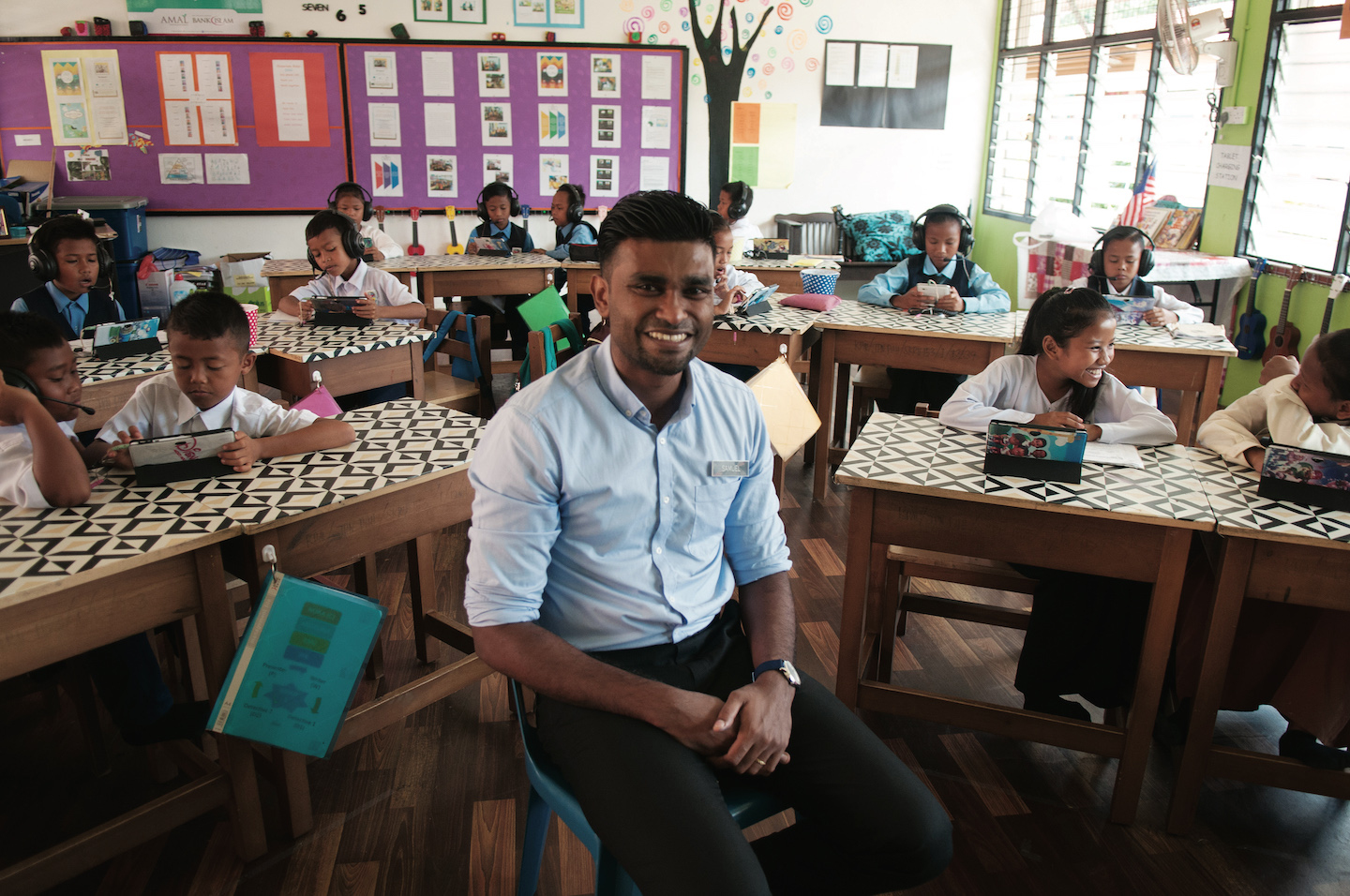
Samuel's efforts also gained national appreciation when he was among the recipients of the Ministry of Education’s Superhero Teachers Award last year (Photo: Samuel Isaiah)
Samuel Isaiah is no stranger to being in the hot seat. In recent days, he has been contacted by many reporters for comment on his making it into the shortlist for the Global Teacher Prize 2020, dubbed the Nobel Prize of the teaching fraternity. The prestigious US$1 million (RM4.4 million) reward by The Varkey Foundation is presented annually to an exceptional teacher who has made an outstanding contribution to his or her profession.
This is not the first time Samuel is fielding questions from reporters, or receiving recognition. There had been a small but steady stream of coverage on his work at SK Runchang in Muadzam Shah, Pahang, where the Kuantan-born teacher was using unorthodox teaching methods that seemed to pay off. His dedication was equally admired and reciprocated — just as he drove 200km each weekday to get to the school, more than 100 of his students traversed that distance to witness and perform at his wedding in 2017. And last year, his efforts gained national appreciation when he was among the recipients of the Ministry of Education’s Superhero Teachers Award.
But the teacher is now a student again. Currently on sabbatical to pursue a two-year Master of Science in Educational Policy and Leadership at the State University of New York in Albany on a Fulbright scholarship, the 33-year-old flew back to Malaysia in June when Covid-19 reared its head and showed no signs of abating.
“I was expecting to stay here until my third semester started in August, but the situation there seems to be getting steadily worse, so I’m sitting in for classes virtually. That means attending lectures at 3am,” Samuel laughs. “I actually was not sure if the sabbatical would disqualify me from the Global Teacher Prize — among the criteria is, you need to have been teaching for at least five years and still be part of the profession upon application. We had to contact the ministry to ensure I qualified.”
The application process is taxing, with 10 essays on topics ranging from teaching philosophy to industry contribution required of the applicants. Over 12,000 teachers applied for the prize this year, with 50 longlisted and then a shortlist of 10 was announced. Two interviews were required at each of the last two rounds to whittle down the number of candidates. For Samuel, making it this far is affirmation that the rocky road is always a worthwhile journey.
“Teaching is not the easiest career path,” he says frankly. “Societal expectations and views of teachers have shifted. It’s no longer looked at as a noble profession or a position of success. People tend to look down on public school teachers, and this is a perception I can attest to, having dealt with it for years. I think it’s because people define success by how much money you earn or the prestige of your position. Careers like doctors, engineers or lawyers may redeem you of many faults. I was lucky that my family supported my decision.”
---
For the full story, pick up a copy of The Edge Malaysia (Nov 30, 2020) at your nearest news stand. Save by subscribing to us for your print and/or digital copy.


